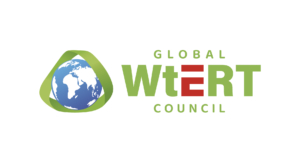WtERT – Proposal for a Research Working Groups (RWG) on Sustainable Waste Management 2024
Title of the Research Working Group:
Converting Non-recycled Plastics to Fuel: A Sustainable Approach
Summary of proposed research activity
Non-recycled plastic wastes represent a significant global environmental challenge due to their remarkable durability, which results in accumulation in landfills and oceans for centuries. Alarmingly, less than 10% of the approximately 300 million tons of plastic waste generated annually is recycled, hindered by the inefficiency of collection and high operating cost associated with recycling processes.
The Research Working Group (RWG) aims to foster research collaboration among WtERT sister organizations to explore Plastic-to-Fuel technologies. These methods encompass various techniques such as pyrolysis and gasification, converting plastic waste into synthetic crude oil that can be further refined into diesel fuel, gasoline, heating oil, or waxes.
Task of Working Groups
This RWG stands as a crucial gathering for experts and innovators focused on waste-to-energy research and technologies. Given the escalating global plastic waste crisis, the RWG sheds light on critical advancements, especially in plastic waste recycling methods. The group will focus on three primary methods: mechanical recycling, incineration, and chemical recycling. We’ll also delve into transformative technologies, like pyrolysis and gasification, and their roles in creating sustainable and efficient resource recovery systems.
Plastic waste recycling is at a pivotal juncture, and the Mechanical Recycling Method remains one of the most common approaches. It involves collecting, sorting, and processing plastics into secondary raw materials. Despite its effectiveness, this method is challenged by the degradation of plastic quality over multiple recycling cycles and the need for meticulous sorting, which can be labor-intensive and costly.
Next, we turn our attention to energy recovery, a process that involves the controlled combustion of plastic waste to generate energy. This method is efficient in volume reduction and energy recovery but carries a significant downside: The combustion process releases CO2, thus contributing to climate change.
Chemical Recycling, on the other hand, is gaining traction for its potential to break down plastics into their monomer forms and re-polymerize them. Technologies like pyrolysis and gasification fall under this category. Pyrolysis converts plastic waste into valuable fuel, while gasification produces synthetic gases that can be further refined. These methods are more adaptable to mixed or uncleaned plastic waste and offer improved recycling attributes compared to mechanical methods. However, they require substantial energy and initial investments.
As one of the Research Working Group’s key objectives, identifying robust technologies like pyrolysis and gasification is essential. These technologies can transform difficult-to-recycle plastic waste into dense energy sources, effectively addressing some of the primary challenges of contemporary recycling methods. The focus on circular resource utilization underscores the importance of designing systems where waste materials are perpetually reused, thus minimizing resource extraction and enhancing sustainability.
Another critical objective is to reduce CO2 emissions during plastic waste conversion processes. Innovations in chemical recycling are advancing in this domain, with potential to refine methods to be more energy-efficient and environmentally benign. The RWG’s commitment to developing and disseminating scientific reports, publications, and recommendations will be instrumental in optimizing these technologies and achieving lower carbon footprints.
Real-world applications of these advancements are already in progress. For instance, countries with stringent waste management regulations are adopting pyrolysis as a means to convert non-recyclable plastics into liquid fuels, which can replace fossil fuels. Meanwhile, gasification is gaining popularity in regions with significant plastic waste challenges due to its versatility in handling diverse plastic types.
Active participation and documentation by RWG members will be vital in shaping these methodologies into sustainable solutions for global plastic waste management. The continued evolution of these technologies will be key in tackling the plastic waste crisis, paving the way for a more sustainable and efficient future.
Deliverables
- Quarterly online meetings of RWG members, documented by a comprehensive report in the form of minutes.
- 1-2 scientific reports per year, such as publications, recommendations, etc., that explicitly acknowledge the beneficial use of bottom and fly ash.
- Online meetings of the co-chairs and selected members to set the direction of the RWG, collaborations, project proposals, conferences, etc.
- Planning to organize a meeting and conference with the domain of the RWG.
- Annual report describing all activities of the RWG
Communication
This RWG communicates on the following channels: Microsoft Teams/Wechat group/Google groups, it will contain also all meeting notes, recordings, and any presentations made during RWG to be available for all members of WtERT.
List of Participants
Please include all members from different countries. Add rows at the Table if necessary.
